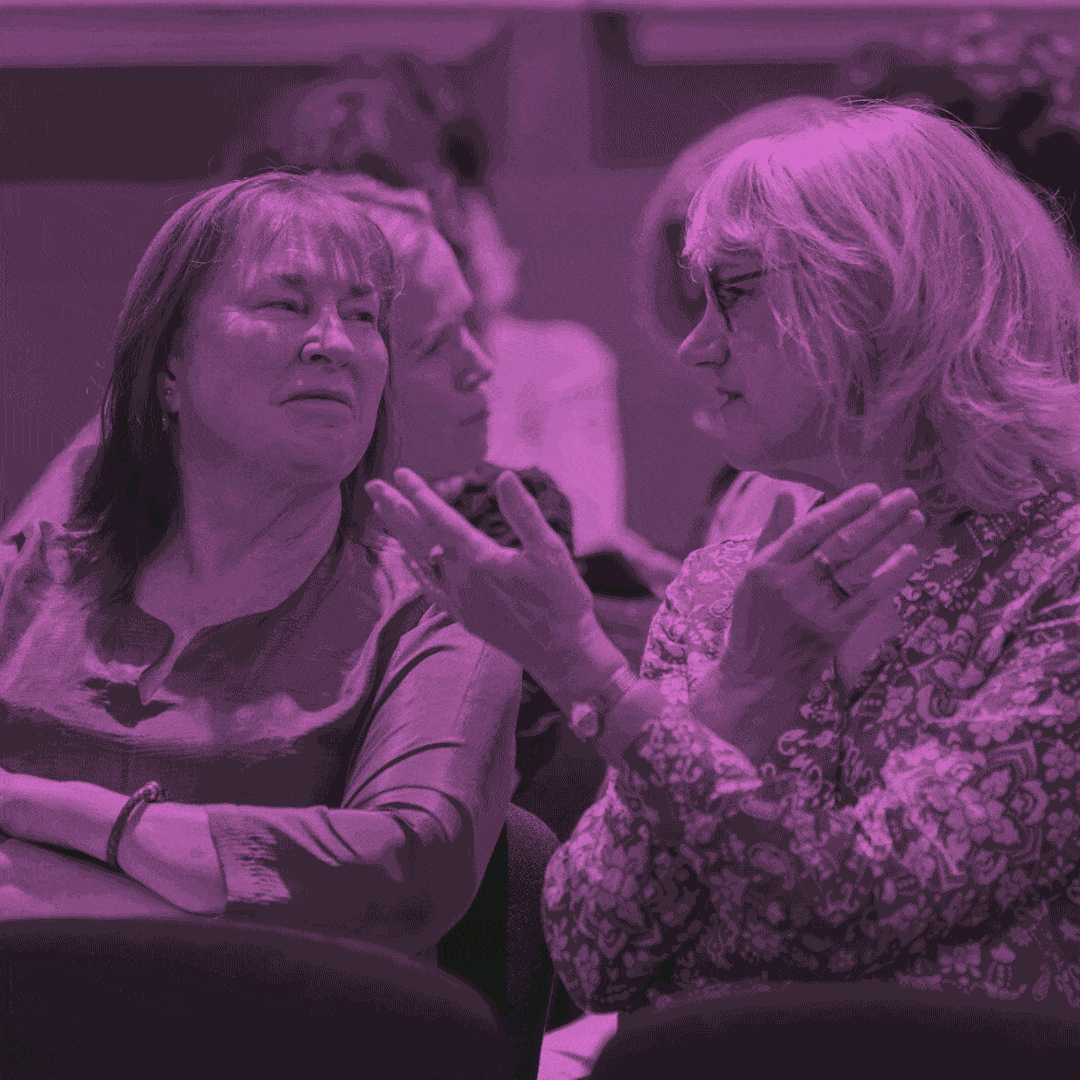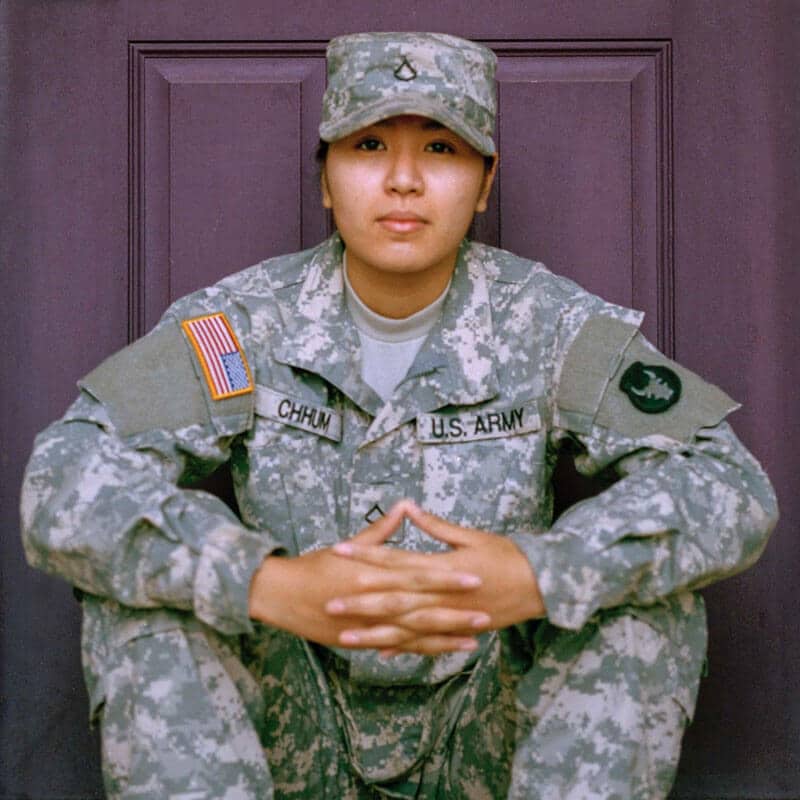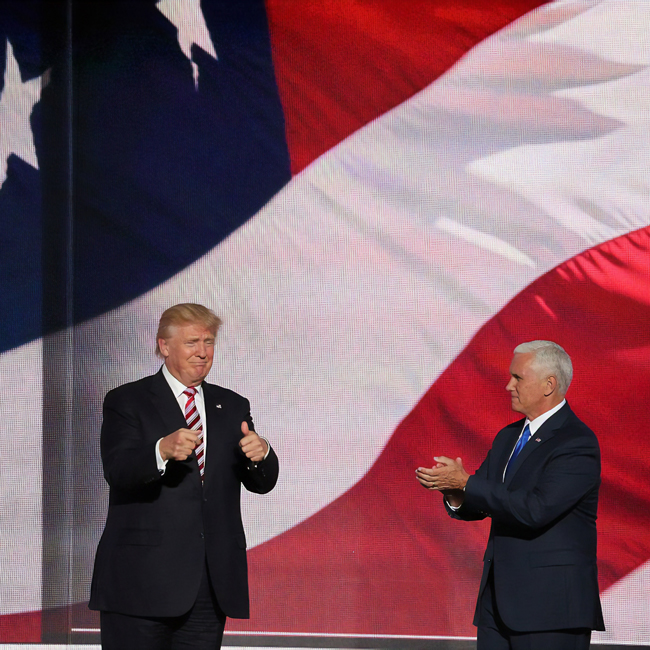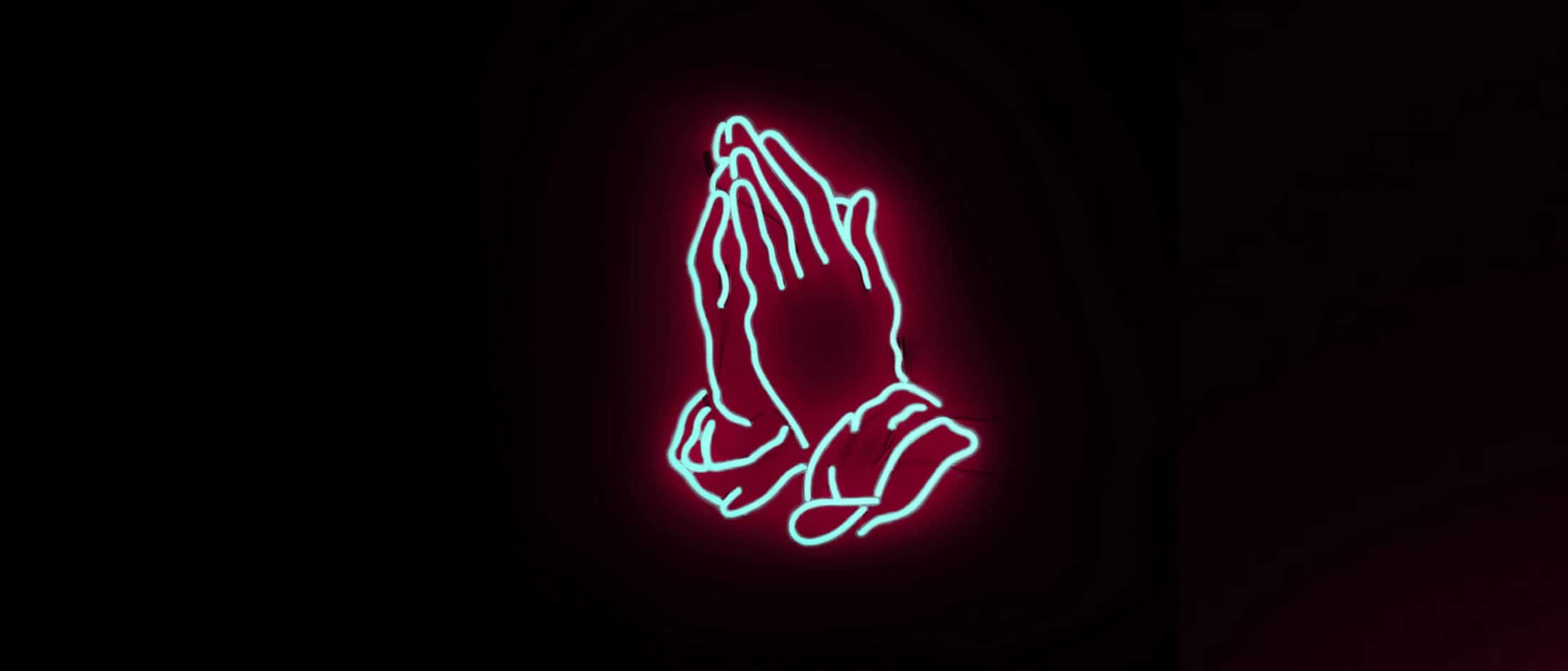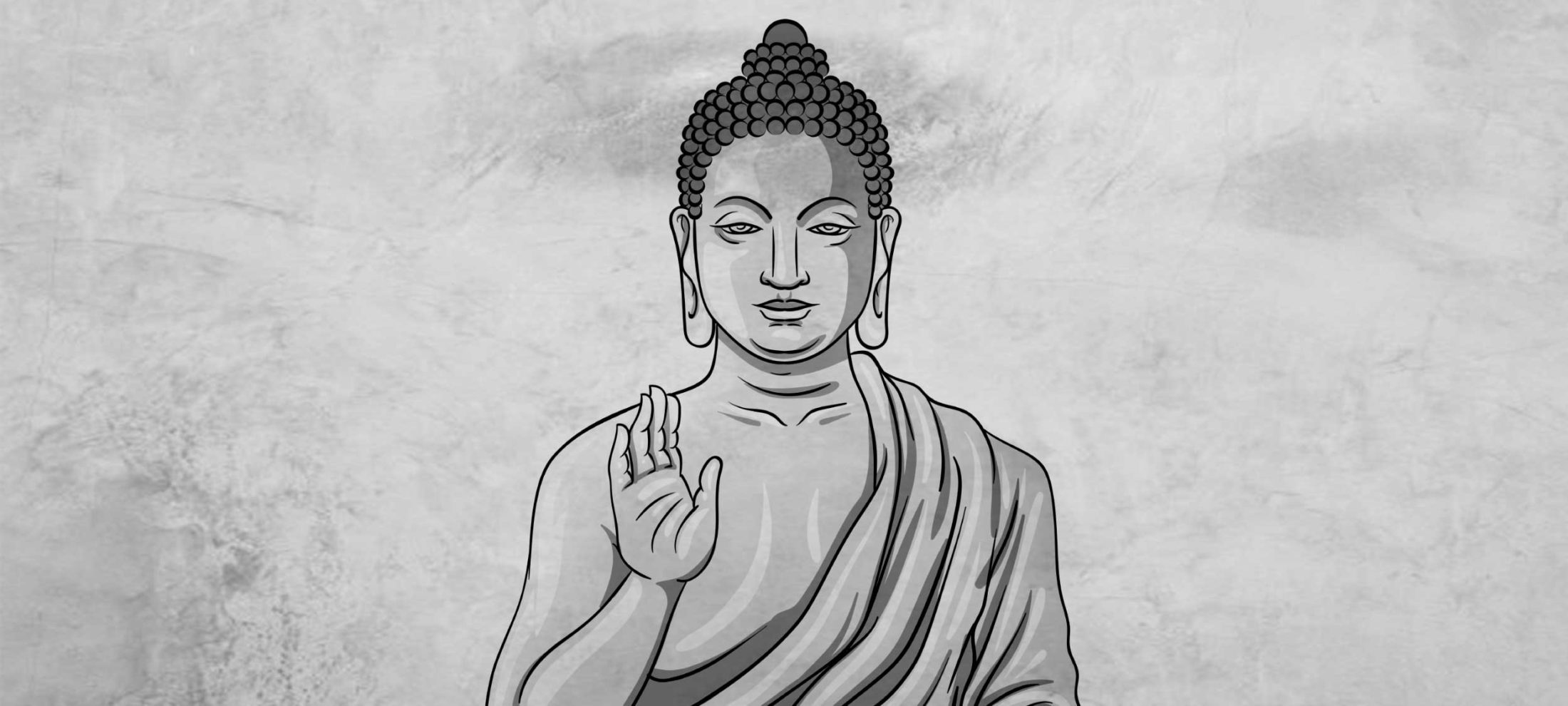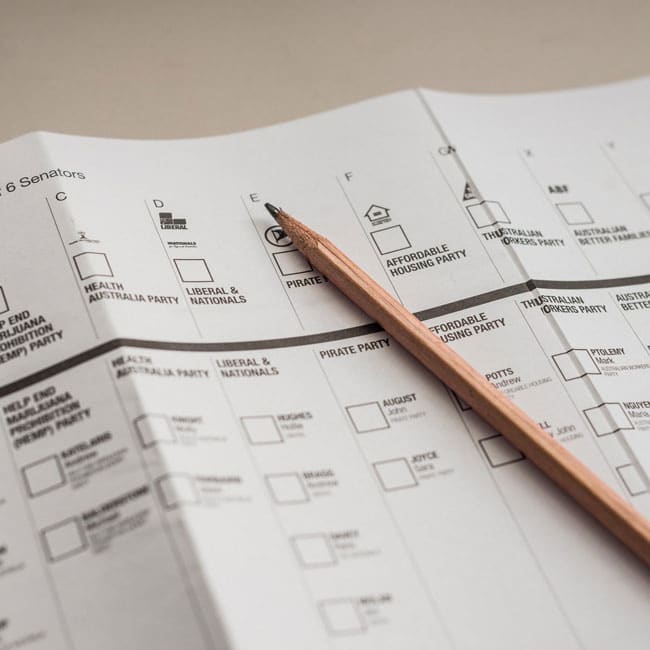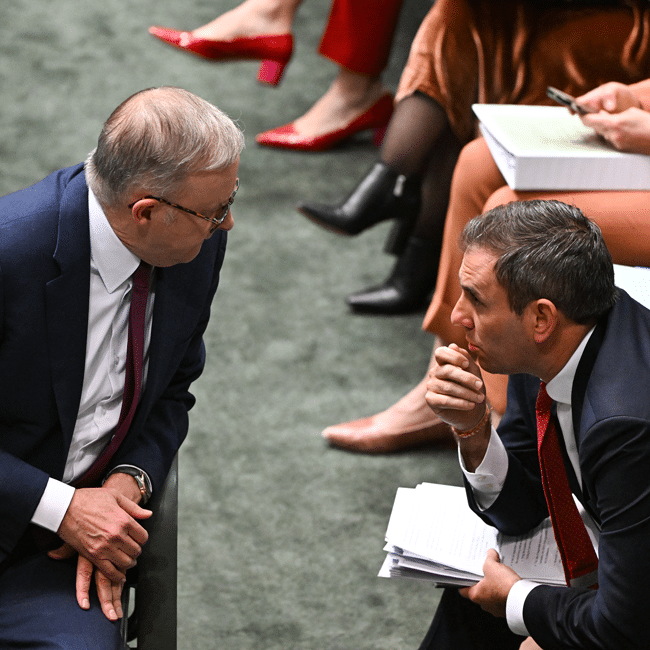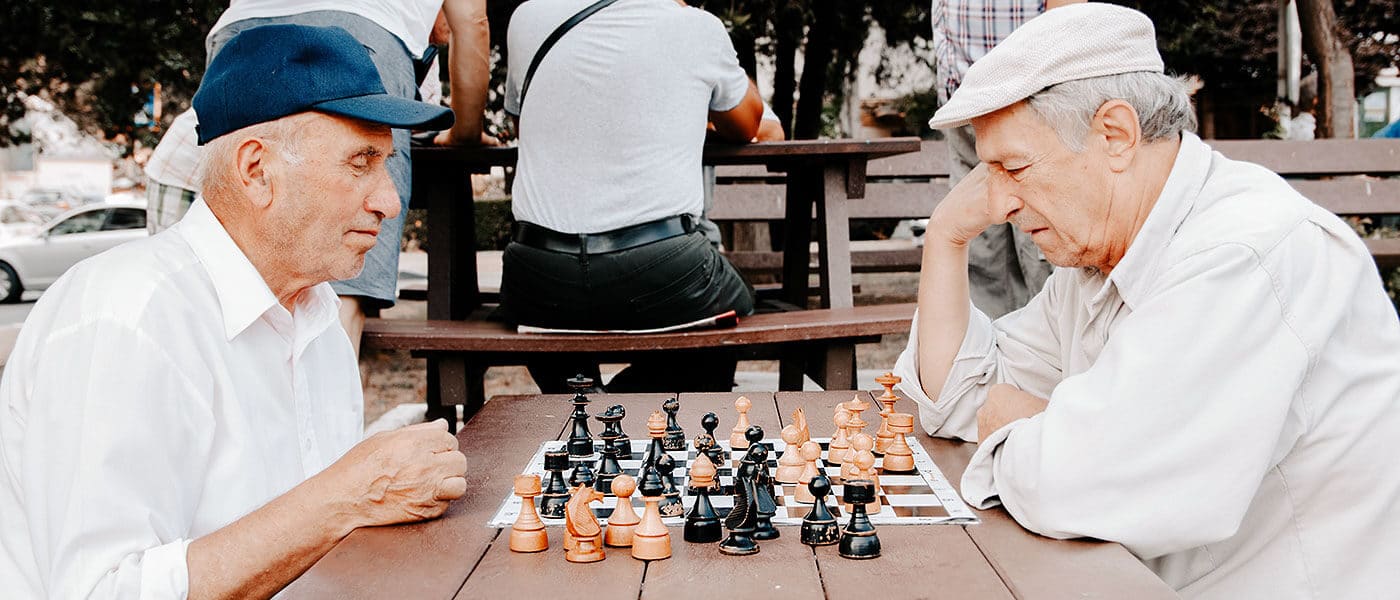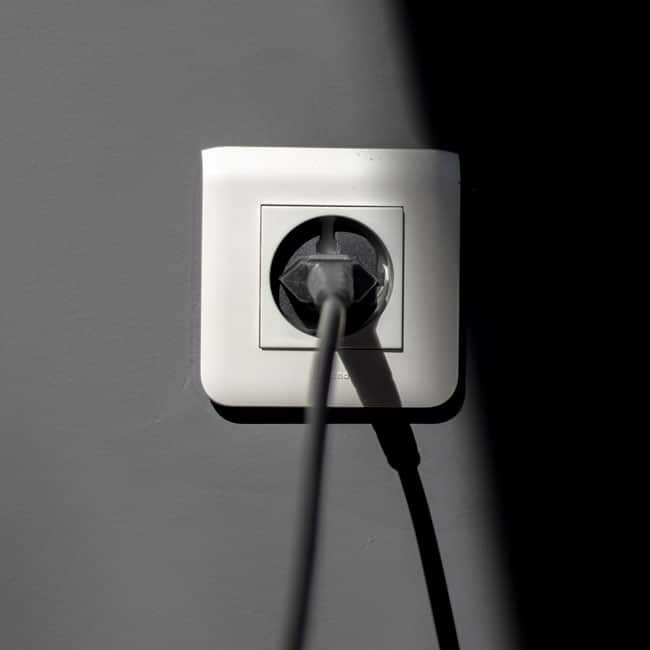The ethics of smacking children

The ethics of smacking children
Opinion + AnalysisHealth + WellbeingRelationships
BY Matthew Beard The Ethics Centre 20 JUL 2017
Every generation likes to reflect on the way they were disciplined. They’re like old war stories, told with the fondness that comes with time and age.
I do the same. I was smacked as a child. For a time, I was convinced my backside was made of something other than flesh, such was its power to shatter wooden spoons. Weirdly, it’s something of a point of pride these days.
When it comes to smacking, it’s not just nostalgic to reminisce like this. It shapes our thoughts about whether smacking is ethical or not. “I was smacked and I turned out fine, so it must be OK.”
But that’s bad logic. The argument is a logical fallacy called “survivorship bias”.
Survivorship bias happens when we focus on those who made it through a difficult process without considering those who didn’t. The logic of “I was smacked and turned out OK” is the same as “I was tortured and I turned out OK”, but the fact you survived it doesn’t make it ethical.
When thinking about smacking, we need some better arguments. Here are a few things to consider.
Smacking is a show of force
With the exception of the grumpy nun from The Blues Brothers known as The Penguin, smacking only works on children who are too small to defend themselves.
Acknowledging this power imbalance changes how some people feel about the act of smacking. Philosopher and parent Damon Young writes, “deliberately striking [kids], whether coolly or in a rage, takes advantage of their weakness”.
Young thinks this is a question of character, writing “I don’t want to be the kind of man who hurts a smaller, weaker person”. Do you want to be the kind of parent who relies on physical power to command discipline, respect or obedience from your child?
Political philosopher Niccolo Macchiavelli said it was “much safer to be feared than loved when one must be dispensed with”. He thought fear was the most effective way to prevent people from betraying you because it creates “a dread of punishment which never fails”.
But Machiavelli had despotic political leaders in mind, not parents.
Effectiveness and ethics aren’t the same
Let’s go back to Macchiavelli for a second. He wasn’t interested in how to rule ethically, he wanted to know how to rule effectively. Sometimes it’s tempting to approach parenting the same way.
‘What’s the best way to get my child to sleep?’ ‘How can I stop him from biting me?’ When we’re bleary-eyed and desperately Googling for answers at three in the morning, we’re looking for whatever will get us the result we want. The means are less important to us than the ends.
Desperation doesn’t make for good ethical judgement. Telling your bub bedtime stories about the monsters who eat naughty children until they’re sobbing in fear might be an effective way to get them to toe the line but it’s not going to win you any parenting awards.
Parenting expert Barbara Coloroso suggests a slight modification to the ‘if it works, do it’ mentality. She suggests, “if it works and leaves a child’s and my own dignity intact, do it”. This is a crucial distinction – the dignity of both children and parents serves as a line in the sand against brute efficiency.
This doesn’t necessarily rule smacking out. Pope Francis himself thought smacking could be a dignified way of teaching kids about ethics.
Talking about a dad who sometimes smacks his kids – but never in the face – the Pope said, “How beautiful. He knows the sense of dignity. He has to punish them but does it justly and moves on.”
As a counter example, it’s worth wondering how dignified the Pope would feel being bent over someone’s knee.
What are you really communicating?
Some people defend smacking as a way of communicating with a child when words won’t do the job. They suggest that in the midst of a meltdown, it’s hard to reason with a child, but if a quick ‘love tap’ gets them to listen to you, it might allow for a constructive conversation.
These folks might enjoy reading Hannah Arendt. The 20th century philosopher thought violence was an effective form of communication to help moderate, reasonable voices to be heard. However, Arendt’s support for violence comes with a warning: the use of violence risks its being legitimised as a form of communication in a community (or family). Once violence becomes the talk of the town, everyone can be tempted to start speaking it.
Arendt concluded, “the practice of violence, like all action, changes the world, but the most probable change is a more violent world”.
If the same is true of families, it might be worth thinking twice before talking with the hand.
Ethics in your inbox.
Get the latest inspiration, intelligence, events & more.
By signing up you agree to our privacy policy
You might be interested in…
Opinion + Analysis
Relationships, Politics + Human Rights
How to have a difficult conversation about war
Opinion + Analysis
Health + Wellbeing, Relationships
Academia’s wicked problem
Opinion + Analysis
Relationships
What we owe to our pets
Opinion + Analysis
Health + Wellbeing, Business + Leadership
The ethics of workplace drinks, when we’re collectively drinking less
BY Matthew Beard
Matt is a moral philosopher with a background in applied and military ethics. In 2016, Matt won the Australasian Association of Philosophy prize for media engagement. Formerly a fellow at The Ethics Centre, Matt is currently host on ABC’s Short & Curly podcast and the Vincent Fairfax Fellowship Program Director.
BY The Ethics Centre
The Ethics Centre is a not-for-profit organisation developing innovative programs, services and experiences, designed to bring ethics to the centre of professional and personal life.
Ethical dilemma: how important is the truth?
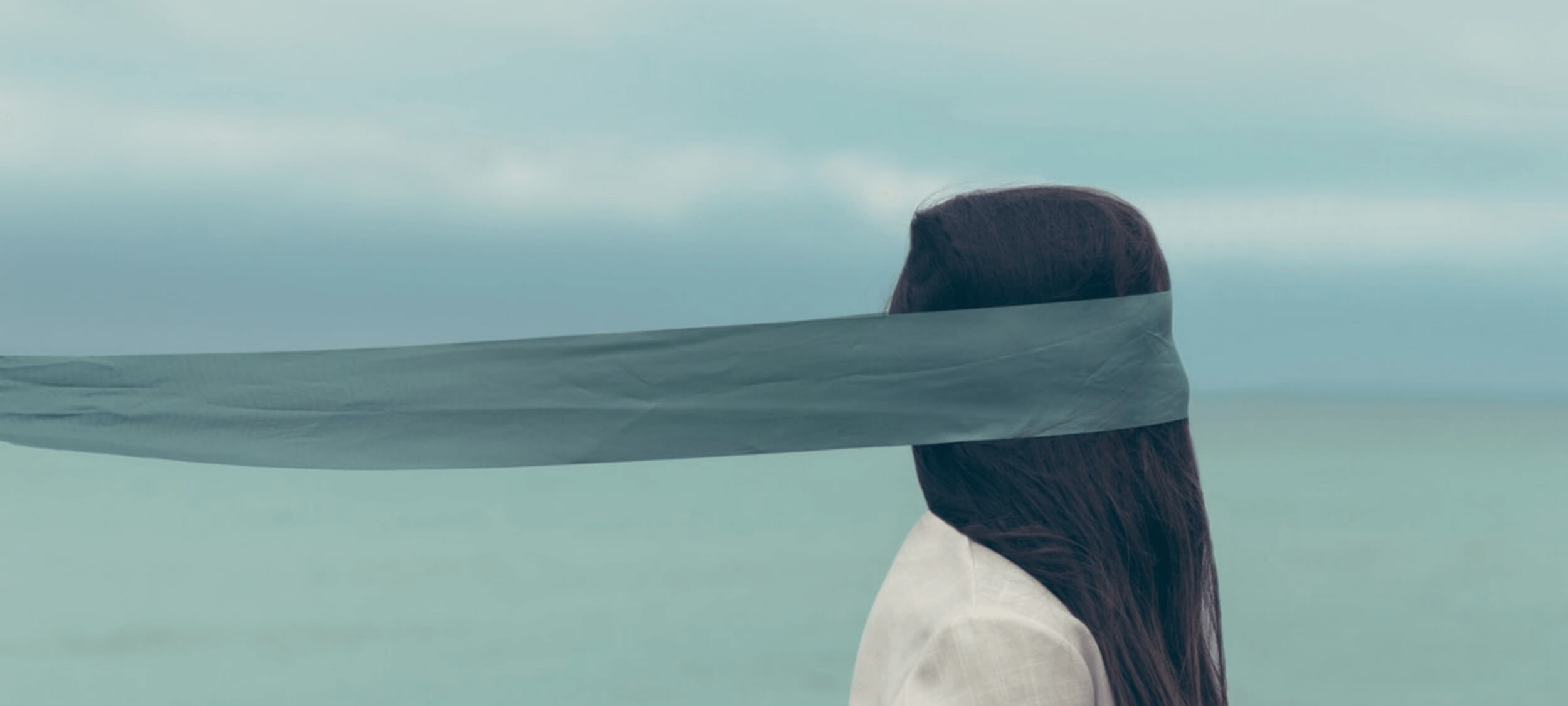
Ethical dilemma: how important is the truth?
Opinion + AnalysisRelationships
BY Matthew Beard The Ethics Centre 16 JUN 2017
Someone I know has just told me that the wife of a very good friend had an affair a few years ago.
The thing is that they seem very happy together, as do their children, and they are a solid family unit. The source of information is good, in that I can trust the person telling me, but he heard from someone else rather than ‘knowing’ for himself. What to do now that I have this information? Do I follow the lead to the original source to find out if it’s true? Do I confront my friend’s wife? Tell my friend? Forget about it altogether? If it isn’t true, I risk looking like an idiot; if it is, I risk breaking up a marriage and family. How important is the truth?
It’s tempting to say “this is none of your business – this is a matter for the person who had the affair to own up to”, but I’m not convinced by that. By saying nothing, you’re still making a decision to withhold potentially life-changing information from someone.
Let’s say that if your friend knew of the affair, they’d leave their wife, decide to stop sleeping with them or whatever. By withholding that information, you’re preventing them from making a choice they would otherwise make, which they have the right to make and which might be in their best interests. That’s a serious responsibility to take on, so you’d need to have pretty good reasons to justify saying nothing.
One such reason might be uncertainty. You say you’ve had this information given to you by a trustworthy source, but your source got that information as gossip. So, the question isn’t ‘can I trust my source?’; it’s ‘can I trust gossip?’
Your source might have good reasons to trust that gossip – you should ask what they are. If there aren’t any special circumstances, it’s hard to see on what basis you’d believe the allegations.
Now you’re wondering whether you need to investigate further. You’ve been told something but it’s an unreliable source – should you go out and find a more reliable source to make a decision one way or the other?
If you do decide to pursue the source further, it’s important you recognise exactly what that means. You’ve been told something is true, realised the source is unreliable and then decided it’s your job to try to find another source that proves it to be true. That’s not an impartial way to make the decision.
Most people would think if you only have one source of evidence for a claim and that evidence is bad, then you no longer have any reason to believe the claim. To keep looking for new evidence to prove the claim true is what psychologists call ‘confirmation bias’.
Still, if you have a close enough relationship to your friend you might be willing to fly in the face of reason and leave no stone unturned. But it would be wrong to say you’re obliged to investigate further: there’s just not enough evidence for that.
This article originally appeared in New Philosopher issue #17 on Communication.
Ethics in your inbox.
Get the latest inspiration, intelligence, events & more.
By signing up you agree to our privacy policy
You might be interested in…
Opinion + Analysis
Relationships
Stopping domestic violence means rethinking masculinity
Opinion + Analysis
Business + Leadership, Relationships
There’s no good reason to keep women off the front lines
Opinion + Analysis
Health + Wellbeing, Relationships
Male suicide is a global health issue in need of understanding
Opinion + Analysis
Relationships, Science + Technology
To fix the problem of deepfakes we must treat the cause, not the symptoms
BY Matthew Beard
Matt is a moral philosopher with a background in applied and military ethics. In 2016, Matt won the Australasian Association of Philosophy prize for media engagement. Formerly a fellow at The Ethics Centre, Matt is currently host on ABC’s Short & Curly podcast and the Vincent Fairfax Fellowship Program Director.
BY The Ethics Centre
The Ethics Centre is a not-for-profit organisation developing innovative programs, services and experiences, designed to bring ethics to the centre of professional and personal life.
United Airlines shows it’s time to reframe the conversation about ethics

United Airlines shows it’s time to reframe the conversation about ethics
Opinion + AnalysisBusiness + Leadership
BY Matthew Beard The Ethics Centre 5 MAY 2017
Have you ever felt like the kind of person who people always go to for advice but never invite out for drinks?
It’s not a lot of fun being the friend they turn to in bad times and the one they forget to call when the going’s good.
Imagine how ethicists feel.
Most people think of ethics when something goes awry, when people don’t know what to do or when someone’s done the wrong thing. Just like the advice-giving friend, ethicists are useful when stuff’s gone wrong but they’re also worth chatting to when things are going well.
It’s true, ethics – and ethicists – helps in those kinds of situations. But the association between ethics and negative circumstances is restrictive. It prevents people from looking for ethical issues before circumstances force them to do so.
This isn’t a campaign for an ‘International Hug an Ethicist Day’ (although it’d be nice). We just want to show how ethics can create meaning and value in the world.
Take the case of United Airlines. Dr David Dao was dragged off an overbooked flight after refusing to give up his seat. United offered hotel rooms and cash to encourage people to volunteer their spot but nobody took the bait. Dao and three other passengers were then randomly chosen and reassigned to another flight.
You don’t need to wait for something to go wrong to check whether you’ve got your ethical house in order.
Dao claimed he had patients to see the next day and refused to move. Video footage emerged of officers dragging him off the plane with a bloodied face. As it turns out, the reason United had to remove passengers was to create space for their own employees.
The reaction was huge. #BoycottUnitedAirlines trended on Twitter and United lost $1.4 billion dollars in share value.
After initially standing firm, United CEO Oscar Munoz apologised on behalf of the airline. The two parties reached a legal settlement. Policies were changed to ensure this wouldn’t happen again. Not long afterward, Munoz sent an email to customers, explaining how it had happened:
It happened because our corporate policies were placed ahead of our shared values. Our procedures got in the way of our employees doing what they know is right.
This isn’t uncommon. Indeed, it’s a danger many organisations and people risk falling into. That United have reached this conclusion and acknowledged it publicly is a step in the right direction.
What is unfortunate is that it took such an unpleasant and commercially damaging incident – not to mention Dao’s suffering – for them to get here. You don’t need to wait for something to go wrong to check whether you’ve got your ethical house in order.
Those who think proactively about ethics are more able to anticipate and overcome challenges. They create a culture where employees regularly flex their ‘ethical muscles’ and are given the freedom to do so.
Engaging in ethics is a proactive process. It’s about identifying what you stand for, what you want to achieve and the right way to do it. At least, it can be.
Instead, it’s often invoked reactively, trying to identify what went wrong and how it can be avoided in the future.
Prevention is better than a cure. Those who think proactively about ethics are better able to anticipate and overcome challenges. They create a culture where employees regularly flex their ‘ethical muscles’ and are given the freedom to do so. Instead of deferring to abstract policies, they’re able to use their judgement to do what’s right according to what the organisation stands for.
This is important considering United’s response. Munoz emphasises the steps United have taken to change their policies to prevent anyone from being thrown off a flight again. But he said the heavy role of company rules was the problem to begin with, saying “our corporate policies were placed ahead of our shared values”.
It’s tempting to think the solution to ethical failure is more rules and stricter codes of conduct. While it’s true sometimes bad policy will be responsible for unethical behaviour, oftentimes more rules can make the problem worse.
Rulebooks are external tools for regulating behaviour. Even though people might be doing the right thing, their capacity to reflect on how they should live can diminish because their ‘ethical muscles’ aren’t strong. Rules and policies can relieve you from thinking about what to do because you can just follow orders and do it.
Our executive director Simon Longstaff explains this with an analogy. If you put someone in a full plaster cast, they’ll stand up straight. However, inside the cast their body will become weaker and weaker until they can’t stand up on their own. Eventually, when the cast comes off or is damaged, they’ll crumple in a heap.
All of this reveals the need to reframe the way we think about ethics. Instead of being about stopping what’s bad, think of it as creating something good.
Relying only on policies to govern behaviour has a similar unintentional weakening effect. Longstaff explains such a system increases risk to itself by reducing the capacity of any single actor to make good decisions when the things are working exactly as they should.
All of this reveals the need to reframe the way we think about ethics. Instead of being about stopping what’s bad, think of it as creating something good.
Encouragingly, there is some evidence United are moving in this direction. As well as acknowledging the need to prevent similar failures in future, Munoz takes the time to imagine a more proactive, ethical role for United:
I believe we must go further in redefining what United’s corporate citizenship looks like in our society. If our chief good as a company is only getting you to and from your destination, that would show a lack of moral imagination on our part. You can and ought to expect more from us, and we intend to live up to those higher expectations in the way we embody social responsibility and civic leadership everywhere we operate.
Of course, as with any commitment to ethical change, words must be followed with action. Yet these sentiments signify a possible shift in the way United thinks about ethics itself. Not only as a way of avoiding bad decisions but as a way of imagining and creating a better organisation and contributing to a better world.
Ethics in your inbox.
Get the latest inspiration, intelligence, events & more.
By signing up you agree to our privacy policy
You might be interested in…
Big thinker
Business + Leadership
Big Thinker: Karl Marx
Opinion + Analysis
Business + Leadership
How BlueRock uses culture to attract top talent
Opinion + Analysis
Business + Leadership
Ethics of making money from JobKeeper
Opinion + Analysis
Business + Leadership
Is there such a thing as ethical investing?
BY Matthew Beard
Matt is a moral philosopher with a background in applied and military ethics. In 2016, Matt won the Australasian Association of Philosophy prize for media engagement. Formerly a fellow at The Ethics Centre, Matt is currently host on ABC’s Short & Curly podcast and the Vincent Fairfax Fellowship Program Director.
BY The Ethics Centre
The Ethics Centre is a not-for-profit organisation developing innovative programs, services and experiences, designed to bring ethics to the centre of professional and personal life.
Can we celebrate Anzac Day without glorifying war?

Can we celebrate Anzac Day without glorifying war?
Opinion + AnalysisRelationships
BY Matthew Beard The Ethics Centre 23 APR 2016
Michael Salter’s article on masculinity and the Anzac story asks important questions of the Anzac story in the Australian consciousness. He paints a compelling story of how militarism threatens to taint both the traditions of Anzac and modern Australian masculinity.
Salter points to William James’ calls for a “moral equivalent of war”. James sought a way to inspire young people to commit to their shared sense of duty without needing to rely on militarism and a general affection for war. It’s crucial, James believed, to provide a social narrative that drives citizens beyond the selfish “pleasure economy” wherein we forget tradition, civic duty and our responsibility to the community.
In today’s Australia, the Anzac story is a crucial aspect of that narrative.
James described the military character as a “pure piece of perfection”. It’s pretty easy to see echoes of this idea in the modern image of the Digger – sacrificial, loyal, hardy, well-humoured, and courageous. Everything a good Australian should be.
The problem is when this story cannot be separated from the military context – when the virtues of the warrior lead us to believe war itself is virtuous and intrinsically worthwhile. That’s what James (and Salter) mean by ‘militarism’ – the mentality that war is good because it teaches virtue.
It’s the threat of militarism that led James to call for a moral equivalent of war. Salter points to the difficult tension for a society that rallies around military stories and figures while also facing an epidemic of (male) violence against women. Is the threat of militarism too great for the Anzac ethos to overcome?
William James described the military character as a “pure piece of perfection”.
I’m not convinced. I think it makes a good case for expanding the kinds of stories we listen to in silent contemplation on Anzac Day, but it doesn’t follow the need to do away with the story altogether.
What we might need to do is counterbalance our social interest in the virtue and nobility of the warrior character (including, dare we say, the warrior ethos that lived in Australia for 40,000 or so years before Anzac) with some honest reflections about the reality of war.
A study compiled by McCrindle Research in 2015 – which Salter also cited – suggests more than a third of Australian men would sign up to a war equivalent to WWI if it occurred today. That should be concerning – for most nations involved in the conflict the ethical justifications are hazy. Just war theorist Nicholas Fotion says, “of the major powers to enter the war in 1914, Britain is the only one that does not constitute a difficult case”.
Given this, there is good reason to believe many Australians are confusing the always tragic, sometimes necessary ethics of just war theory with the idea that participating in war is always virtuous. Do they need to stop being taught about war or do they need to be informed of its tragic reality?
Perhaps we’ve remembered the valour of soldiers from decades ago while overlooking the testimony of many of Australia’s modern Anzacs.
According to some reports, former US President Theodore Roosevelt hoped his sons might lose a limb in war as a mark of valour. This militarism though, disappears somewhat from his later letters after his sons were injured. Although he still believes his sons fought with valour, he is more circumspect than what he may have been earlier.
And this presents us with a possible solution – to broaden our war stories to include the horror and suffering it inflicts alongside our praise for the valour and sacrifice of the Anzacs.
Perhaps we’ve remembered the valour of soldiers from decades ago while overlooking the testimony of many of Australia’s modern Anzacs. Those whose character has been profoundly affected by war in ways William James never imagined – PTSD, traumatic brain injury, homelessness, substance abuse, unemployment, family breakdown – also need to be thought of and reflected upon.
If the readiness to use force when necessary is indeed a virtue, it needs to incorporate a full understanding of the personal and moral costs of violence.
This serves the intended purpose of Anzac – to bear silent witness to the sacrifices of Australian military men and women. As an added bonus, it might counteract the rampant militarism James feared – and which might be infecting us more than we know.
Ethics in your inbox.
Get the latest inspiration, intelligence, events & more.
By signing up you agree to our privacy policy
You might be interested in…
Big thinker
Relationships
Big Thinker: bell hooks
Opinion + Analysis
Politics + Human Rights, Relationships
Why we should be teaching our kids to protest
Opinion + Analysis
Health + Wellbeing, Relationships
Pop Culture and the Limits of Social Engineering
Opinion + Analysis
Relationships
The danger of a single view
BY Matthew Beard
Matt is a moral philosopher with a background in applied and military ethics. In 2016, Matt won the Australasian Association of Philosophy prize for media engagement. Formerly a fellow at The Ethics Centre, Matt is currently host on ABC’s Short & Curly podcast and the Vincent Fairfax Fellowship Program Director.
BY The Ethics Centre
The Ethics Centre is a not-for-profit organisation developing innovative programs, services and experiences, designed to bring ethics to the centre of professional and personal life.
To live well, make peace with death

To live well, make peace with death
Opinion + AnalysisHealth + WellbeingRelationships
BY Matthew Beard The Ethics Centre 14 JAN 2016
“What do we say to the god of death?” swordsman Syrio Forel asks Arya Stark in George R.R. Martin’s Game of Thrones (and in HBO’s TV series). “Not today.”
This short refrain marks the beginning of a sustained exploration of humanity’s relationship with death told through Arya’s experiences. She becomes a murderer and later, in ‘The House of the Undying’ where death is seen as a god to be worshipped, an assassin and servant to that god.
Watching Arya’s story unfold, it seemed to me she’d never forgotten her former (you guessed it, now dead) teacher’s lesson – the only response to death is denial.
According to many thinkers, this isn’t surprising at all. Arya isn’t alone in running from death. Denying the reality of human mortality is a near universal behaviour. In The Antidote: Happiness for people who can’t stand positive thinking, Oliver Burkeman considers the writing of Ernest Becker, whose arguments Burkeman surmises. “Your life is one relentless attempt to avoid [thinking about death] – a struggle so elemental that … for much of the time you succeed.”
Becker believed to avoid confronting our mortality people invest in “immortality projects”. Art, family, business, nations, war, charity, and so on… Immortality projects aim to overcome physical death by ensuring our continued existence through symbols or ideas.
The late David Bowie promised “We can be heroes”, and that’s precisely Becker’s point. Immortality projects are attempts to become heroes, thereby avoiding the emptiness of death.
But research suggests the common instinct to avoid thinking about our mortality might be worth pushing against. In a paper entitled ‘Deliver us from Evil’, researchers found that mortality avoidance can cloud our judgements about life and death issues, leading to unreflective decisions in high-stakes situations.
The study asked two groups of people to undertake a long and generally dull questionnaire and then to read a short essay and tell researchers how strongly they agreed with it. The essay was a strong statement of support for the controversial policies of the Bush administration’s invasion of Iraq. It included lines like “It annoys me when I hear other people complain that President Bush is using his war against terrorism as a cover for instituting policies that, in the long run, will be detrimental to this country … Mr. Bush has been a source of strength and inspiration to us all. God bless him and God bless America”.
The only difference between the two groups was that one questionnaire forced subjects to consider their own mortality. The “mortality salience” group were asked to “briefly describe the emotions that the thought of your own death arouses in you” and to “jot down, as specifically as you can, what you think will happen to you as you physically die, and once you are physically dead”.
For some, even the idea of answering these questions might feel uncomfortable, as it did for the subjects in the experiment. Researchers found the “mortality salient” subjects invested more strongly in the nearest immortality project to hand – the war in Iraq. Subjects from the mortality salience group agreed strongly with the essay. By contrast, the control group generally disagreed with the essay’s sentiments.
When we’re forced to confront our own mortality, our default reaction may not be the product of rational thinking but an impulsive rejection of death.
This tells us something important – especially in a time when we are continually confronted with the threat and reality of terrorism and domestic violence nearly every day. When we’re forced to confront our own mortality our default reaction may not be the product of rational thinking but an impulsive rejection of death. The researchers argued similarly:
The fact that reminders of death and the events of 9/11 enhanced support for President Bush in the present studies may not bode well for the philosophical democratic ideal that political preferences are the result of rational choice based on an informed understanding of the relevant issues.
This poses a challenge for ethical behaviour – some of the most serious ethical decisions people face are made when they are confronted with death. Most obviously these include healthcare and political decisions with serious implications for the general populous. Is it possible to overcome mortality avoidance and make decisions based on moral values and principles instead?
Researchers weren’t optimistic on this point, but Burkeman indirectly suggests a way forward. His interest lay in whether thinking about death might enable us to live a happier life. He presents evidence that regular contemplation of death can enable us to avoid horror and shock when it ultimately arrives. “The more you become aware of life’s finitude, the more you will cherish it and the less likely you will be to fritter it away on distraction”.
The same might be true for our mortality avoidance in decision making. If regular acquaintance with death can remove some of its shocking strangeness, perhaps we will be less likely to invest in immortality projects as a way to distract ourselves from its reality. By making our peace with the fact we are all going to die, we will be less likely to make decisions based in our fear of death. If ‘Deliver us from Evil’ is any indication, this might also save lives in the long run by ensuring serious decisions are made reasonably and not from fear.
Plus, doing so might also make you happier.
Ethics in your inbox.
Get the latest inspiration, intelligence, events & more.
By signing up you agree to our privacy policy
You might be interested in…
Opinion + Analysis
Business + Leadership, Health + Wellbeing, Relationships
Ending workplace bullying demands courage
Opinion + Analysis
Politics + Human Rights, Relationships
We’re being too hard on hypocrites and it’s causing us to lose out
Opinion + Analysis
Relationships
Narcissists aren’t born, they’re made
Opinion + Analysis
Relationships
5 lessons I’ve learnt from teaching Primary Ethics
BY Matthew Beard
Matt is a moral philosopher with a background in applied and military ethics. In 2016, Matt won the Australasian Association of Philosophy prize for media engagement. Formerly a fellow at The Ethics Centre, Matt is currently host on ABC’s Short & Curly podcast and the Vincent Fairfax Fellowship Program Director.
BY The Ethics Centre
The Ethics Centre is a not-for-profit organisation developing innovative programs, services and experiences, designed to bring ethics to the centre of professional and personal life.
Praying for Paris doesn’t make you racist

Praying for Paris doesn’t make you racist
Opinion + AnalysisRelationships
BY Matthew Beard The Ethics Centre 17 NOV 2015
It is not Paris we should pray for. It is the world.
Those are the opening lines of a poem by Karuna Ezara Parikh, a poet from New Delhi, whose poem went viral after terrorism attacks in Paris, Beirut, and Baghdad.
The poem reflects a growing tradition in which people’s personal responses to tragic events is subjected to moral scrutiny. In response to online movements of solidarity such as #Prayers4Paris and #JeSuisParis emerged #PrayfortheEntireWorld and#PrayforLebanon.
These response movements censure those whose concerns about global terrorism are limited to Paris. At best they charge people with insensitivity, at worst outright racism. And not without some cause. Facebook, for instance, have not enabled a filter to show solidarity with Lebanon – nor was the Safety Check feature enabled for those in Beirut as it was for those in Paris.
It prompted New Matilda to ask (or perhaps more accurately, accuse):
How do we explain our identification with French suffering and our apparent indifference to Lebanese suffering? Or more to the point, how do we explain our indifference to the suffering of people we perceive as different, Lebanese, African, Hazara, Muslim … Brown people.
I’ve been thinking about Paris more than I have Beirut. I don’t believe that makes me racist, indifferent, or insensitive.
I have not prioritised some victims of terrorism over others. Victims of murder are always and everywhere the victims of one of humanity’s deepest horrors – their very right to life has been torn away. In this tragedy, they are all equals.
Those who ISIS murdered in Beirut are no more or less important than those in Paris. Or in Mosul, Baghdad, or anywhere else for that matter – not ethically, nor to me personally. But it doesn’t follow from this that I ought to allocate equal sorrow, grief or reflection to each incident.
It may not even be possible.
Scottish philosopher David Hume believed morality was based in sympathy – the ability to understand and share in the experiences of another person. Morally good people are, Hume argued, pleased when someone experiences something good and saddened when someone else suffers.
But all of this is grounded in our ability to know and understand how another person is feeling. We are more readily able to imagine and thereby sympathise with the familiar. We are better at knowing how our family feel than we are a total stranger.
I’ve been to Paris – I’ve walked the streets, smelled the air, and been among its people. I was there on my honeymoon. My wife and I dined in restaurants, drank in bars, and wandered the streets around Rue de Voltaire – just like those who were slaughtered last Friday.
ISIS didn’t just attack today’s Paris. They attacked the Paris of Les Misérables, A Tale of Two Cities, and Hemingway.
When my heart breaks for Paris it breaks because I know the streets that are stained with blood more intimately than I do the markets of Beirut or the mosques of Baghdad. Others whose heritage, reading or travels are different may connect more with Baghdad or Beirut. Or Japan, Mexico or any of the countless places in the world where innocent people suffer.
Of course, not everyone mourning for or expressing solidarity with Paris has visited France before. Perhaps the charge of racism still applies. Do Westerners more readily empathise with the experience of white people? Not necessarily.
Paris has always held a special place in the Western imagination. It sits alongside Rome and Athens as definitive of Europe and the West. This is precisely why ISIS chose it as a target. Terrorism speaks in symbols, and Paris is precisely that. ISIS called it the “capital of prostitution and obscenity” but Paris is more than that – it’s an icon of Western secularism, humanism and indeed, decadence.
ISIS didn’t just attack today’s Paris. They attacked the Paris of Les Miserables, A Tale of Two Cities and Hemingway. Put simply, Paris was attacked because it matters more than most other places to the West. Terrorism aims to hit our imaginations, so ISIS struck a city that captures it more than most.
The other reason Paris strikes us more deeply is because it brings the threat of terrorism closer to home. Although every Western nation has been exposed to Islamic extremism in its own way, we continue to believe attacks on our own soil to be the unlikely exception. Statistically, they are, but attacks in places such as Boston, Paris, or New York make the risks of terrorism tangible in a way similar attacks in Baghdad, Beirut, or Nigeria do not.
This is because Western nations have, since the Enlightenment, eschewed the type of ideological extremism that generates the violence that defines ISIS and other groups. We have led ourselves to believe religiously motivated violence is an artefact of history in secular societies. In other parts of the world where the norms of secularism don’t apply, we understand such violence to be possible – but not here.
Western nations have, since the Enlightenment, eschewed the type of ideological extremism that generates the violence that defines ISIS and other groups.
Thus we are not only shocked or sorrowed by attacks in Paris, we are afraid. And so we counteract our fear with movements of solidarity, resolve and a reaffirmation of our values. That’s not racism.
With all that said, it is right that people remind us of horrors elsewhere in the world. By expanding our imaginative faculties we can overcome the xenophobia and tribalism on which groups like ISIS rely.
So take a moment for Beirut, for Baghdad – mourn their dead. Think more of those places than Paris if it’s where your thoughts, prayers or heart lies. But don’t shame those who still think of Paris, and don’t feel guilty if you feel the same.
Ethics in your inbox.
Get the latest inspiration, intelligence, events & more.
By signing up you agree to our privacy policy
You might be interested in…
Explainer
Relationships
Ethics Explainer: Double-Effect Theory
Opinion + Analysis
Politics + Human Rights, Relationships
Whose home, and who’s home?
Opinion + Analysis
Politics + Human Rights, Relationships
When human rights complicate religious freedom and secular law
Big thinker
Relationships
Big Thinker: Buddha
BY Matthew Beard
Matt is a moral philosopher with a background in applied and military ethics. In 2016, Matt won the Australasian Association of Philosophy prize for media engagement. Formerly a fellow at The Ethics Centre, Matt is currently host on ABC’s Short & Curly podcast and the Vincent Fairfax Fellowship Program Director.
BY The Ethics Centre
The Ethics Centre is a not-for-profit organisation developing innovative programs, services and experiences, designed to bring ethics to the centre of professional and personal life.
Maggie Beer: Good food can drive better aged care

Maggie Beer: Good food can drive better aged care
Opinion + AnalysisHealth + Wellbeing
BY Matthew Beard The Ethics Centre 6 NOV 2015
Cooking guru Maggie Beer has turned her culinary prowess to the considerable task of dishing up better food for the elderly, whether they’re living at home or in aged care. With her team at the Maggie Beer Foundation, she’s coordinating a movement that will bring the healing power of food to those who need it.
“We want to give them the energy to create mobility… So many people in the industry are working so hard often without the support, without the newest thinking or ideas, without the specialised training and without being valued,” Beer explains.
Loneliness and hopelessness can be a challenge to good nutrition. The elderly – especially the bereaved – can struggle to rationalise the effort and expense of cooking for themselves. Not only is it demanding on time and energy, it can be a reminder of loss.
It’s not surprising frozen meals and food delivery services become attractive. But this brings us back to nutrition. “So many of them are ordering Lite n’ Easy!” Beer bemoans. “Nutritionally, it’s the exact opposite of what they need”, which is, among other things, full-fat meals high in protein and calcium.
Better food and better food communities represent a solution. Taking a meal is a traditionally communal enterprise that nourishes the body and the soul.
“Loneliness is a huge thing so we’re trying to bring people together – even once a month – to share a meal and be part of a wider community,” says Beer.
Passion also plays a part. Beer is in the business of cultural change and she wants a passion for food to be part of the solution.
She hopes for “a kitchen culture [in aged care] where chefs and kitchenhands are proud of the food that’s being produced.” This pride in creating beautiful food trickles outward. It creates more energetic residents, but also reveals to staff the therapeutic power of pleasure.
“It makes them [the staff] proud and celebrates those providing the food,” she explains.
Beer is battling against those who allow the elderly merely to exist rather than live a full, enriching life. So is the problem with food in aged care a symptom of the broader social malady – our collective attitudes to ageing?
“It’s endemic”, says Beer. “We need to find those industry leaders who don’t have the preconceived notion that the elderly can be cared for without soul… I want to create a sense of outrage about [elderly people] who are merely existing.”
Cultural change is important to improve conditions for those in aged care right now. Beer is less concerned about the next generation of elderly.
“Baby Boomers have been making changes all their life – they won’t accept the status quo. But people need help and support now. They’ve lived hard lives and not complained. Now they need to feel valued.”
Beer is no slouch on the pragmatics of cultural change. Her strategy could have been pulled straight from Aristotle who believed ethical role models were necessary for good education. Beer is looking for examples of industry best practice to serve as benchmarks for others.
Using these benchmarks successfully will require leaders who are open to improvement – and a recommitment to the industry values that inform aged care.
“If you have a leader who knows how much good food can give to the resident pleasure and wellbeing, [it creates] a totally different attitude to those who see it as a means of keeping people alive… By finding the great examples, celebrating them and using them as benchmarks, there is so much we can do,” she says.
There are a number of such leaders around. Off the cuff Beer lists a range of projects she knows of or is involved with. From architecture to linguistics and gardening, progress is being made.
It isn’t just about changing the system, but each individual’s attitudes to include the elderly as part of the community. In that spirit, I ask Beer for three dishes every grandchild should be able to cook for their grandparents.
“It should be nutritious, but with lots of flavour and nostalgia”, she says. “Shepherd’s pie, a chicken soup with lots of vegies, and bread-and-butter pudding full of eggs, custard, and cream.”
The German philosopher Ludwig Feuerbach quipped, “philosophers have broken their heads over the question of the bond between body and soul. Now we know… eating and drinking hold together body and soul, that the searched-for bond is nutrition.”
He seems to have found his muse.
Ethics in your inbox.
Get the latest inspiration, intelligence, events & more.
By signing up you agree to our privacy policy
You might be interested in…
Opinion + Analysis
Business + Leadership, Health + Wellbeing
Why ethical leadership needs to be practiced before a crisis
LISTEN
Health + Wellbeing, Business + Leadership, Society + Culture
Life and Shares
Opinion + Analysis
Health + Wellbeing, Relationships
Want to live more ethically? Try these life hacks
Opinion + Analysis
Health + Wellbeing, Relationships
Academia’s wicked problem
BY Matthew Beard
Matt is a moral philosopher with a background in applied and military ethics. In 2016, Matt won the Australasian Association of Philosophy prize for media engagement. Formerly a fellow at The Ethics Centre, Matt is currently host on ABC’s Short & Curly podcast and the Vincent Fairfax Fellowship Program Director.
BY The Ethics Centre
The Ethics Centre is a not-for-profit organisation developing innovative programs, services and experiences, designed to bring ethics to the centre of professional and personal life.
Nurses and naked photos

Nurses and naked photos
Opinion + AnalysisPolitics + Human Rights
BY Matthew Beard The Ethics Centre 6 NOV 2015
A Sydney nurse took an explicit photo of a schoolteacher who was under anaesthetic and awaiting surgery.
The teacher said, “I am a larger woman. To me, it’s obvious she took it to make fun of fat people.” The teacher is campaigning for legal reform to protect other patients from suffering in similar ways and to see the nurse punished for a criminal offence.
Obviously what this nurse did was wrong. It objectified another human being, treating her as an object of ridicule and subject to the whimsical mood of the nurse. What’s more, the nurse violated the contract of trust that underpins the relationship between patients and the medical profession.
By photographing her naked the nurse also subjected the teacher to deep and ongoing humiliation about her body and usually private sexual organs. The photograph also creates the possibility for further exploitation, distribution, and humiliation.
The teacher said, “I felt like my world was exploding. I felt I was in great peril that this photo was going to destroy my life, my career and that my son would find out.” It seems the psychological ramifications have been severe.
The act was intrinsically wrong. It violated notions of trust, the inherent dignity with which people ought to be treated, and undermined the values that inform the profession of nursing.
But independently of the consequences, the act was intrinsically wrong. It violated notions of trust, the inherent dignity with which people ought to be treated, and undermined the values that inform the profession of nursing.
It will be distressing to learn that there is currently no law in NSW forbidding behaviour like this. A loophole in the law means that because the photo was not motivated by sexual deviancy, but by the desire to make fun of the patient, no legal recourse was available. It seems reasonable to call for legal reform. This is precisely what Fiona McLay, the teacher’s lawyer, is doing.
The act was incontrovertibly unethical regardless of its legal standing and yet this nurse still felt empowered to take the photo. And worse, the nurse is still practising without restrictions or supervision, having apologised and found to have shown “the appropriate level of contrition”.
Despite all this, the instinct to turn to law as a way to amend or prevent unethical behaviour is misguided. What is required is for the nursing profession to demonstrate this behaviour will not be tolerated and is directly against the values nursing stands for.
Making such photographs illegal will do little to return trust – patients will still be vulnerable before surgery occurs and nurses will still have the opportunity to take such photos. Making photographs illegal will do little more than allow wrongdoers to be sent to prison.
Law is a clumsy instrument for enforcing ethical behaviour.
For us to trust nurses in spite of a story like this the profession must uniformly state their disapproval for the conduct and demonstrate willingness to enforce its own ethical standards. Law is a clumsy instrument for enforcing ethical behaviour. Re-committing as a profession and as individual professionals to the core values of the field – trust, respect for persons and patient care – is much more likely to avoid instances like this in the future.
There is no reason to excuse the nurse’s behaviour in this case. However, it is worth understanding this incident occurred in a context where crass jokes may well be the norm.
Jokes help us get through the day and although this one went seriously awry we should recognise the context in which it was made. Nursing is a tough field. It’s demanding on the body and the mind, and sometimes errors of judgement – including insensitive, invasive jokes – are a possibility.
As the old saying goes, sometimes you have to laugh to keep from crying.
Humour is a matter of taste, and much relies on pushing against ordinary modes of thinking – including moral norms. Of late there has been heated debate regarding the place and value of racist and sexist humour in comedy. Regardless of the view we take on that particular subject, we should agree that any form of humour that trades off the humiliation of a particular individual, or is done in ways that can have lasting and severe consequences for a person’s wellbeing will be unethical – even if funny to some.
Ethics in your inbox.
Get the latest inspiration, intelligence, events & more.
By signing up you agree to our privacy policy
You might be interested in…
Opinion + Analysis
Politics + Human Rights
A note on Anti-Semitism
Opinion + Analysis
Politics + Human Rights, Relationships
Would you kill baby Hitler?
Opinion + Analysis
Politics + Human Rights
Ask an ethicist: Why should I vote when everyone sucks?
Opinion + Analysis
Business + Leadership, Politics + Human Rights
Democracy is still the least-worst option we have
BY Matthew Beard
Matt is a moral philosopher with a background in applied and military ethics. In 2016, Matt won the Australasian Association of Philosophy prize for media engagement. Formerly a fellow at The Ethics Centre, Matt is currently host on ABC’s Short & Curly podcast and the Vincent Fairfax Fellowship Program Director.
BY The Ethics Centre
The Ethics Centre is a not-for-profit organisation developing innovative programs, services and experiences, designed to bring ethics to the centre of professional and personal life.
Would you kill baby Hitler?

Would you kill baby Hitler?
Opinion + AnalysisPolitics + Human RightsRelationships
BY Matthew Beard The Ethics Centre 1 NOV 2015
The New York Times Magazine polled its readers. “If you could go back and kill Hitler as a baby, would you do it?” 42% of people said yes.
Why they decided to ask the question is a mystery, but it sparked a meme that’s been bouncing around the internet ever since. The meme reached its zenith when Huffington Post asked Jeb Bush whether he would do the deed.
“Hell yeah, I would,” he declared. “You gotta step up, man.” Bush acknowledged the inherent fragility of time travel – as explored by scholars Marty McFly and Doc Brown, but ultimately conceded, “I’d do it. I mean, Hitler…”
Before you saddle up behind Jeb on the time travel express to Hitler’s nursery, here are a few things to consider.
Baby Hitler is innocent
Most ethical justifications for killing start with the presumption that people don’t deserve to be killed unless they’ve done something to forfeit their right to life. Depending on who you speak to, this might include being involved in an attack against somebody else, being in the military or even trafficking drugs.
Unless baby Hitler is running a Walter White-esque meth operation out of his preschool, he’s done nothing to forfeit his right to life.
Until he does – say, by orchestrating genocide – Hitler retains it. Killing him as a baby would therefore be wrong.
Acts of evil have personal costs
Knowingly doing the wrong thing – like killing an innocent baby – carries a personal cost. When we transgress against deep moral beliefs we can experience debilitating guilt, shame, anxiety and depression. Such actions can even come to define us permanently.
Some academics are now using the term ‘moral injury’ to describe the personal costs of acting against our moral beliefs. “Don’t kill innocent children” is arguably the most deeply held moral belief any of us have. Violating that norm comes at a severe price.
“Don’t kill innocent children” is arguably the most deeply-held moral belief any of us have. Violating that norm comes at a severe price.
Doing something wrong for the greater good doesn’t always work
German philosopher Immanuel Kant rejected the idea that ethics was just about “the greatest good for the greatest number” (a view known as consequentialism). Instead he argued that ethics was about doing what you are duty-bound to do – such as tell the truth and don’t kill.
He once considered the question of whether you could lie to save someone’s life. A murderer asks you for the location of a certain baby because he wants to murder him. Can you lie to save the baby’s life? Kant argued that you couldn’t – because you can’t guarantee that your lie will save the baby.
If you send the murderer to the bowling alley knowing the baby is upstairs, who’s to say the babysitter hasn’t taken the baby to the bowling alley without your knowledge? Suddenly you’ve told a lie and the baby is still dead, so you’ve made the situation worse overall.
In the case of Hitler, you would need to be certain his death would prevent the rise of Nazism and the Holocaust. If – as many historians contend – the rise of Nazism was a product of a range of social factors in Germany at the time, then killing a baby isn’t going to reverse those social factors. Butchering the babe might even allow for the rise of another power – equal to or worse than Hitler.
And you’ve still killed a baby.
Killing isn’t necessary
Some people argue that killing the innocent might be justified when it is the lesser evil. But even in that case it has to be absolutely necessary. If time travel is possible, it seems unlikely to be necessary to kill baby Hitler as opposed to, say, kidnapping him, adopting him out to a Jewish family or offering him a scholarship to the Vienna School of Fine Arts.
If time travel is possible, it seems unlikely to be necessary to kill baby Hitler.
Human lives are of immense, perhaps even infinite value. To take one – especially an innocent one – when it isn’t absolutely necessary is a serious ethical issue.
Dangerous precedent
Where do we draw the line? Once we’re done with Hitler which baby is on the block next? Pol Pot? Stalin? The guy who spoiled the end of Harry Potter and the Order of the Phoenix for me in high school? We would require a set of consistent, universal ethical principles by which to determine which babies deserve death and which don’t.
Giving baby Hitler all of our murderous attention betrays our cognitive and personal bias – surely there are other worthy candidates? How many lives must a person take before their infant self is a legitimate target for killing? What standard will be applied?
For me, I wouldn’t do it. I mean, just look at baby Adolf…
Ethics in your inbox.
Get the latest inspiration, intelligence, events & more.
By signing up you agree to our privacy policy
You might be interested in…
Explainer
Politics + Human Rights
Ethics Explainer: Deontology
Opinion + Analysis
Politics + Human Rights
Power without restraint: juvenile justice in the Northern Territory
Opinion + Analysis
Politics + Human Rights
Ask an ethicist: Why should I vote when everyone sucks?
Opinion + Analysis
Politics + Human Rights, Business + Leadership
Political promises and the problem of ‘dirty hands’
BY Matthew Beard
Matt is a moral philosopher with a background in applied and military ethics. In 2016, Matt won the Australasian Association of Philosophy prize for media engagement. Formerly a fellow at The Ethics Centre, Matt is currently host on ABC’s Short & Curly podcast and the Vincent Fairfax Fellowship Program Director.
BY The Ethics Centre
The Ethics Centre is a not-for-profit organisation developing innovative programs, services and experiences, designed to bring ethics to the centre of professional and personal life.
David Pocock’s rugby prowess and social activism is born of virtue

David Pocock’s rugby prowess and social activism is born of virtue
Opinion + AnalysisBusiness + LeadershipHealth + Wellbeing
BY Matthew Beard The Ethics Centre 30 OCT 2015
In the Wallabies’ semi-final match against Argentina, David Pocock played over 70 minutes with a broken nose. Although Adam Ashley-Cooper would walk away as man-of-the-match thanks to a hat-trick of tries, most commentators agree Pocock’s heroics had as much impact on the result as anything else.
Pocock played all 80 minutes, made 13 tackles, ran the ball eight times, broke two tackles and made four turnovers. Despite only playing four games in the World Cup, he leads the tournament for turnovers with 14.
Fox Sports News described him as “the world’s best player” whilst the Sydney Morning Herald labelled him “The single most important player to take the field come Sunday morning”.
None of this should come as much surprise – as a back rower, Pocock’s success is derived as much by will power, courage, and perseverance as it is by skill. And Pocock has it in spades. He explains:
“My parents were always clear with my brothers and I when we were growing up that you have to have the courage of your convictions and that when you commit to something you must fully commit.”
That quote didn’t come from a post-match interview but from one of Pocock’s blog posts following his arrest in December 2014. Unlike some other footballers, Pocock’s arrest wasn’t a boozy 3am affair. A spokesperson for the environment and public supporter of Julia Gillard’s Carbon Tax, he was arrested for a nonviolent protest against Whitehaven’s coal mine at Maules Creek.
Pocock spent around 10 hours chained to a farmer who was, in turn, chained to one of Whitehaven’s superdiggers.
This wasn’t much of a surprise to those following Pocock’s career. He has been outspoken on a range of issues for several years. He and his partner, Emma Palandri, refuse to marry until LGBTQIA+ couples in Australia can do the same. Although describing themselves as married, the pair have not signed the legal documents to verify it. “‘I don’t see the logic in excluding people from making loving commitments to each other,” Pocock explains.
It’s not the only time Pocock has stood up for LGBTQIA+ rights. In a match against the NSW Waratahs earlier this year he reported NSW lock Jacques Potgieter for repeatedly using a homophobic slur. Amidst some criticism (and praise) Pocock refused to yield – even as some speculated it would cost him the Wallabies captaincy.
Pocock has repeatedly put his head on the block for the causes he believes in.
Pocock’s on-field success cannot be readily distinguished from his off-field activism. In a sentiment widely attributed to Aristotle (but actually a summary of his views), “We are what we repeatedly do. Excellence, then, is not an act, but a habit.”
Courage – or fortitude as Thomas Aquinas called it – is the virtue that enables you to do what you believe to be right despite the difficulties involved. No matter the cost. Not a surprising trait in a man who fellow Wallaby Michael Hooper says “puts his head in some places that are pretty dangerous and gets the ball out”.
After Maules Creek the Australian Rugby Union issued Pocock with a formal warning. They wrote, “While we appreciate David has personal views on a range of matters, we’ve made it clear that we expect his priority to be ensuring he can fulfil his role as a high-performance athlete”.
It’s a tough ask for someone like Pocock to separate his politics from his rugby. Pocock’s on-field success cannot be readily distinguished from his off-field activism. In a sentiment widely attributed to Aristotle (but actually a summary of his views), “We are what we repeatedly do. Excellence, then, is not an act, but a habit”.
Pocock’s courage under fire, his perseverance and his commitment are habits. What makes him a high-performance athlete isn’t just his physical frame but his mental discipline and personal virtue.
We can’t switch virtues on and off when they suit us – we either have them or we don’t. When Pocock gets up to make a crucial tackle or to reach the breakdown a fraction earlier than his rivals to steal the ball he demonstrates the same commitment that saw him support LGBTQIA+ rights, defend the environment, speak about his eating disorder or discuss his faith publicly.
Pocock could no more remain silent off the field than he could hold back on it. His character disposes him to holding fast to what he believes is good. Doing otherwise would dull both his crucial sporting instincts and what makes him an upstanding human being.
You can’t praise Pocock’s on-field achievements whilst also condemning his off-field activism. They’re children of the same beast – his unwavering commitment.
Though there are no doubt those who disagree with Pocock’s views, you can’t praise his on-field achievements whilst also condemning his off-field activism. They’re children of the same beast – his unwavering commitment.
There is ongoing debate regarding whether or not professional athletes should serve as role models. The ability to play sport well doesn’t translate into the moral virtues required in a role model. As Charles Barkley famously remarked, “Just because I dunk a basketball doesn’t mean I should raise your kids.” If Pocock’s prominence both on and off the field are born of the same character traits, then his example allows us to see the role model debate in a new light.
Legendary NFL coach Vince Lombardi once remarked, “The difference between a successful person and others is not a lack of strength, not a lack of knowledge, but rather, a lack of will”. Had he not died 18 years before David Pocock was born, you’d swear Lombardi was talking about him.
Ethics in your inbox.
Get the latest inspiration, intelligence, events & more.
By signing up you agree to our privacy policy
You might be interested in…
Opinion + Analysis
Business + Leadership, Health + Wellbeing, Science + Technology
Can robots solve our aged care crisis?
Opinion + Analysis
Business + Leadership
Ethical redundancies continue to be missing from the Australian workforce
Opinion + Analysis
Health + Wellbeing, Relationships
There is something very revealing about #ToiletPaperGate
Opinion + Analysis
Business + Leadership, Health + Wellbeing, Relationships

